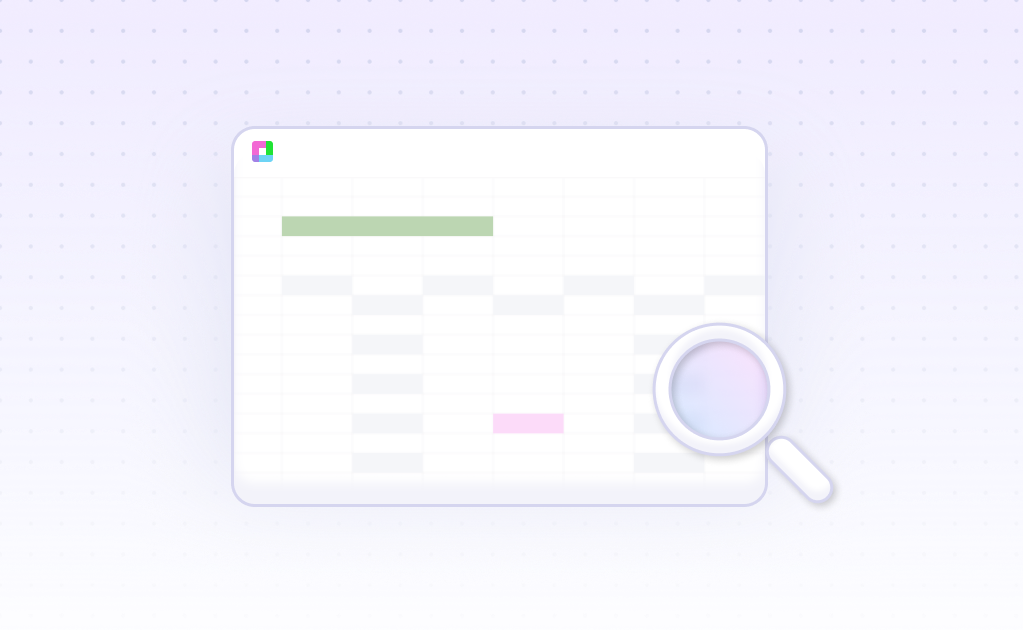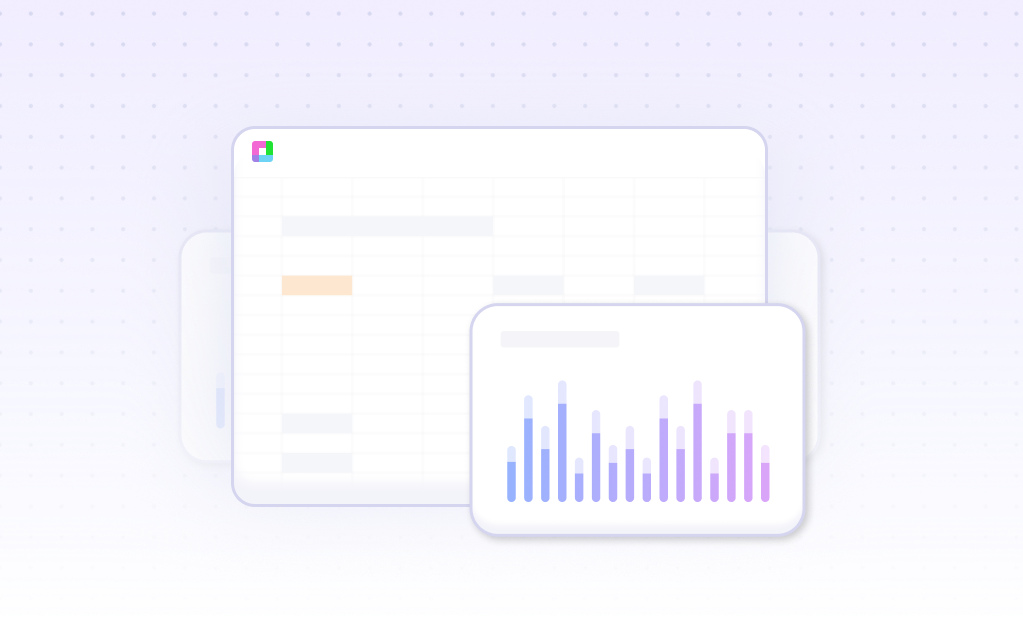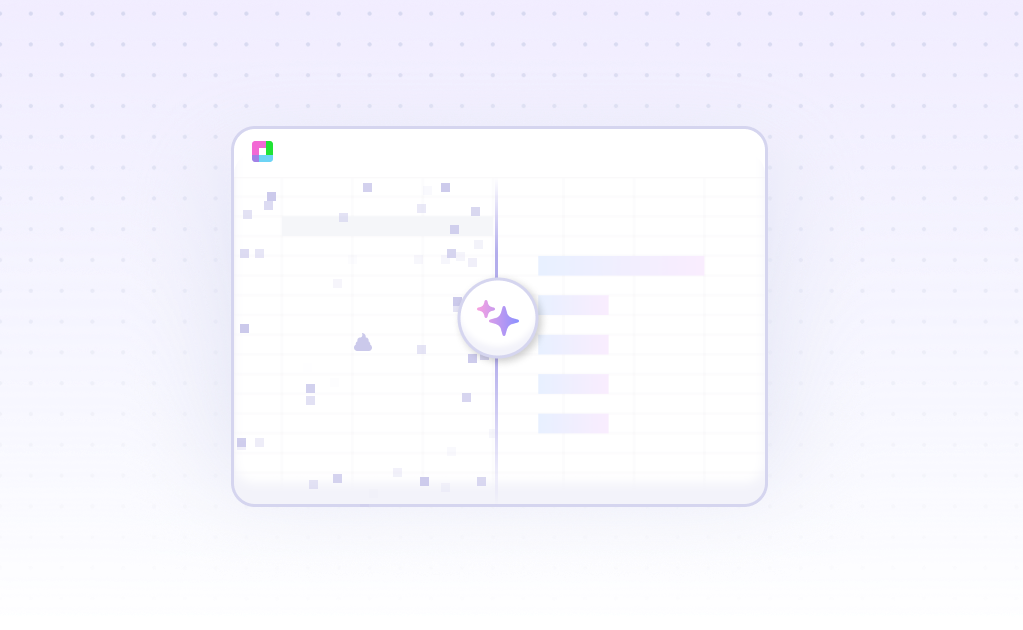
Introduction
Dynamic financial analysis helps you understand the story behind company financials and make data-driven business decisions. Excel users traditionally rely on INDEX, MATCH, and INDIRECT formulas to create dynamic calculations and search through financial data. While these formulas are powerful, they require significant Excel expertise. Sourcetable, an AI-powered spreadsheet that pairs chatbot functionality with traditional spreadsheet features, offers a more intuitive approach. Through natural language commands and integration with over 100 data sources, Sourcetable accelerates financial analysis tasks like formula creation, charting, and data cleaning. Learn how Sourcetable empowers you to perform dynamic financial analysis without extensive Excel knowledge.
Why Sourcetable Is the Best Tool for Dynamic Financial Analysis
Excel's limitations make it unsuitable for modern financial analysis. While excellent for ad-hoc analysis, Excel struggles with large datasets, lacks governance, and creates collaboration challenges through multiple file versions. Its manual updates, limited self-service interface, and basic visualizations further restrict its effectiveness for dynamic financial reporting.
AI-Powered Financial Analysis
Sourcetable combines Excel's functionality with AI capabilities, enabling automated routine tasks, enhanced data analysis, and improved decision-making. Its natural language interface eliminates the need for complex formulas, allowing users to analyze data through simple queries that generate visual summaries and patterns.
Modern Financial Team Solutions
Sourcetable addresses the core needs of contemporary finance teams: large-scale operations and dynamic, company-wide reporting. Its AI-driven platform ensures consistent metrics across teams, robust querying capabilities, and enhanced security with fraud protection. The platform's interactive visualizations and collaborative features eliminate the version control issues that plague Excel.
Benefits of Dynamic Financial Analysis with AI-Powered Spreadsheets
Dynamic financial analysis (DFA) provides insurance companies with a comprehensive risk assessment method. Unlike traditional actuarial approaches that examine risks in isolation, DFA reveals how different hazards interconnect and impact financial outcomes including profitability, solvency, business mix, and compliance. Financial practitioners use DFA to optimize shareholder and customer value while maintaining stability.
Enhanced DFA with AI-Powered Analysis
AI integration transforms dynamic financial analysis by improving accuracy, speed, and scalability. The technology automates complex workflows and enables real-time decision making by extracting actionable insights from large datasets. As AI-powered financial analysis becomes a competitive necessity, it allows teams to work more efficiently while delivering higher impact results.
AI enhances DFA by simplifying data analysis and improving forecasting precision. The technology makes financial data more accessible and actionable, helping insurance companies maximize the benefits of their dynamic risk assessments. Through automation and natural language processing, AI-powered spreadsheets streamline the entire analysis process while maintaining analytical rigor.
Dynamic Financial Analysis Examples with Sourcetable
Sourcetable combines Excel's powerful modeling capabilities with AI-driven automation to enable sophisticated financial analysis. The platform supports customizable formulas, scenarios, and reports while integrating seamlessly with external data sources and accounting software.
Key Analysis Types
Sensitivity Analysis and Monte Carlo Simulation capabilities allow analysts to evaluate how changes in input variables affect financial outcomes. The DCF (Discounted Cash Flow) Model leverages functions like XNPV and XIRR to calculate present values and returns.
Comparable Company Analysis and M&A Analysis utilize array formulas and advanced lookup functions to process complex datasets. Free Cash Flow Analysis benefits from AI-powered automation for data cleaning and report generation.
Enhanced Functionality
AI tools integrated within Sourcetable automate scenario analysis, financial forecasting, and trend analysis. The platform's security measures protect sensitive financial data while enabling collaboration through business tool integration.
Dynamic modeling capabilities ensure that output reports automatically update with changing inputs, while consistent naming conventions and standardized methodologies improve model reliability.
Use Cases for Dynamic Financial Analysis with Sourcetable
Three-Statement Financial Modeling |
Build comprehensive financial models incorporating income statements, balance sheets, and cash flow statements. Project operating and financial performance using historical data, industry metrics, and management guidance. |
Valuation Analysis |
Perform company valuations using DCF models for intrinsic value calculations and comparative analysis through trading and transaction comps models. Create data tables to sensitize key variables affecting valuation outputs. |
Capital Investment Analysis |
Conduct capital budgeting analysis using the capital investment model. Use toggle switches to evaluate different scenarios and assumptions for investment decisions. |
Distressed Company Analysis |
Analyze financially distressed companies using restructuring models. Create error-proofed models with circuit breakers to manage circular references and complex financial scenarios. |
Frequently Asked Questions
What is dynamic financial analysis (DFA) and why is it important?
Dynamic financial analysis is a holistic method for assessing risks of an insurance company, in contrast to traditional actuarial analysis which analyzes risks individually. Using AI for DFA has become a competitive imperative, allowing finance teams to work faster, smarter, and with higher accuracy at greater scale.
What are the main benefits of using AI-powered dynamic financial analysis?
AI-powered financial analysis enables finance teams to work faster, smarter, and with higher accuracy at greater scale. It also allows teams to focus more on strategy and value creation rather than manual analysis tasks.
How can you perform dynamic financial analysis in Sourcetable using Monte Carlo Simulations?
To perform dynamic financial analysis in Sourcetable, you first set up the model with the formula or output to analyze, then use the Data Table feature to specify input cells. You can run Monte Carlo Simulations to understand risk and uncertainty, which produces a wide range of outcomes that can be analyzed for their distribution.
Conclusion
Dynamic financial analysis in Excel relies on powerful formulas like INDEX, MATCH, and INDIRECT to create flexible calculations that adapt to changing data. While these formulas enable sophisticated analysis, they require extensive Excel expertise to implement effectively.
Sourcetable offers a modern AI-powered alternative that simplifies dynamic financial analysis through natural language commands and automated workflows. Its integration with over 100 data sources and ability to execute Python and SQL code provides comprehensive analysis capabilities without requiring formula expertise.
Whether you choose Excel's traditional formula-based approach or Sourcetable's AI-assisted analysis, dynamic financial analysis helps organizations monitor data in real-time and extract valuable insights. Ready to streamline your financial analysis? Try Sourcetable's AI-powered platform at sourcetable.com/signup.
Recommended Analysis Guides
Connect your most-used data sources and tools to Sourcetable for seamless analysis.
Frequently Asked Questions
If your question is not covered here, you can contact our team.
Contact Us




